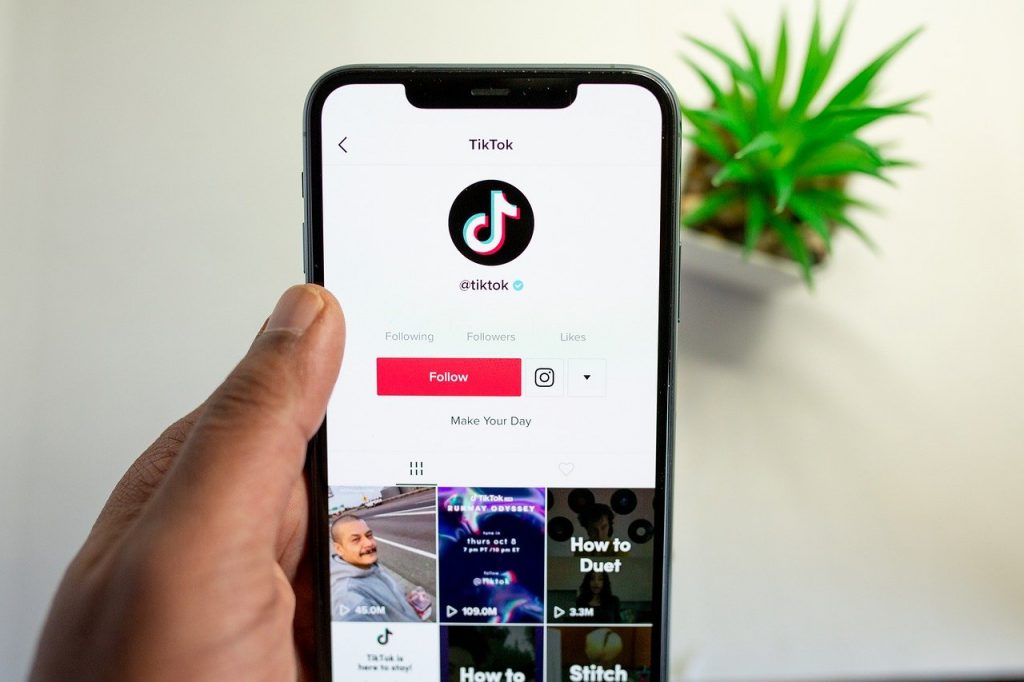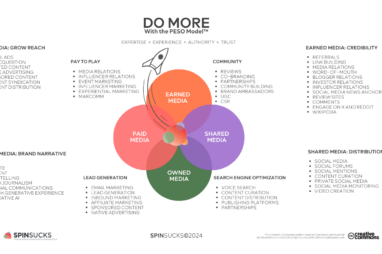How can ethical brands engage with Gen Z?
About the author
Semhar Tesfu wrote this article for a CIPR Professional PR Diploma assignment while studying with PR Academy

Gen Z (the generation born between 1995-2010) are known to be the most environmentally and socially conscious. This powerful generation is the largest in human history, making up 32% of the global population. Being born into a digital world, their expectations of fast technology and instantly accessible information and digital connections has created collectivism proven to impact and change society and brands. Their perceptions of the world and attitudes are ones of greater societal and environmental good and this is reflected in their expectations for brands.

Although a brand itself is neither good nor bad, the values, strategies and actions of the organisation behind it can influence the brand’s perception of being ethical or not.
For too long, brands have been in the driving seat with reputations carved out by slick marketing tactics, and, unfortunately for old-school advertisers, Gen Z doesn’t want to be sold at. Brands need to move away from traditional marketing and PR tactics to engage with this generation. They should listen, be authentic, and collaborate instead of trying to influence them if they are to effectively engage with Gen Z.
Public relations is not about influencing but “two-way symmetrical communication” says Professor James Grunig from the University of Maryland, as it is more ethical. So how should public relations and communications practitioners best form dialogue and effectively engage with this group?
Digital natives that want to be heard
This truly digital generation believe they can make a significant impact online. Two in three (64%) believe supporting issues online is more effective at making a difference than doing something in their communities and about half of this group thought their engagement on their social channels as a powerful way to motivate others to care. Brands should use their social channels as primary tools to listen to and engage with Gen Z on the causes they care about.
Social channels should be used to actively listen to and be at the forefront of relevant conversations as well as to crowdsource ideas and product development which can lead to early buy-in and active involvement from participants.
Using online polls Pret’s active engagement on social channels led by its user generated strategy is a good example of how an ethical brand uses polls and tap into their mentions to join online conversations in a humorous and friendly tone.
There should also be a balance between public and private engagement. Hootsuite’s recent report, Social Media Trends 2020, recommends using a public feed to drive broad reach then taking to private channels to focus on one-to-one engagement to form deeper relationships with customers.
True organisational listening shouldn’t just be tokenistic efforts but truly embedded and integrated in the culture and individuals responsible according to Professor Jim Macnamara from the University of Technology Sydney. He also suggests auditing the channels used and recognising the similarities and differences of those listening and communicating. This level of change requires commitment from both the organisation and the communications professionals that have been trained to influence and broadcast messages.
Truly ‘transformational dialogue’ says Dr Heather Yaxley, a PR Academy tutor who also works with the Chartered Institute for Public Relations, requires an open mind to allow the conversation to progress in different directions to develop the relationship beyond a single conversational exchange which is also true.
Community management
Gen Z value online communities because these allow people of different economic circumstances to connect and mobilise around causes and interests.
Do Something Strategic’s Director of Business Development, Mary Noel, says brands that prioritise community-building will win with Gen Z. To do this, they should identify their authentic purpose that is intrinsic to the values and operations and to allow Gen Z to help shape the brand. Taco Bell’s Senior Director of Global Communications and Engagement, Rob Poetsh, said that “[Gen Z] don’t just buy our brand; they buy into the brand.”
Building a community requires active engagement and Dr Heather Yaxley suggests the key to doing this well is social listening, being proactive, responding to questions and requests, offering advice and reporting back into the wider organisation. She also suggests crowdsourcing and a good example is Glossier. The socially-driven beauty brand fuelled by community, created one-to-one conversations with its audience and crowdsourced product development by asking its followers what they would like to see next. This approach not only sparked conversations online but helped customers feel a sense of ownership to the products and brand.
Finding unique ways to grow and sustain engagement by facilitating virtual hangouts with celebrities and fan channels such as Lego’s Ideas platform which allows members to submit, review and support ideas for future products. For every YouTube video Lego uploads, customers create 20 videos.
The search for authenticity and truth
Gen Z’s consumption habits are formed by their search for truth and authenticity, in both a personal and a communal form, research by McKinsey reveals. They expect honesty and transparency from brands so tokenistic efforts to promote diversity or greenwashing will be noticed and won’t be tolerated. It’s important to create messaging that not only fits their values, but the brands core purpose to build credibility.
In a crisis, brands should be honest, take responsibility and genuinely right their wrongs. Gen Z are tolerant of companies involved in scandals, if the mistakes are corrected.
The rise of the conscious consumer has meant brands are expected to be wholly ethical in their approach. Non-existent, half-hearted or lacklustre environmental and ethical commitments won’t go down well with this progressive generation. An ethical and sustainable brand should have a multi-dimensional approach to causes and go beyond solely focussing on a single issue.
According to Simonetta Lein writing in Forbes, “a sustainable brand is one that has successfully integrated environmental, economic and social issues into its business operations. However, many companies that consider themselves to be sustainable only meet one-third of this definition.”
If a brand wants to appeal and effectively engage with this generation, they should develop policies and commitments that are genuine and aligned to the brand’s values and purpose across these issues.
The brand experience
Gen Z are not only hungry for content, but they want to be entertained, and if they are entertained first, they will share their experience. 61% of Gen-Zer’s say entertainment is the main thing they go online for, according to an international survey by WP Engine. Shareable branded content that sparked conversations about responsible drinking was an impressive result for drink company Diageo’s ‘Weekend not Wasted’ campaign – tapping into post millennials’ clean living social mores.
Branded content is mostly welcomed by this generation, so developing unique, engaging content and experiences using multi-channel strategies is an opportunity for brands. For the ultimate Gen-Z experience, brands must consider how platforms work together rather than each channel individually. Market research for Pollfish indicates Gen Z use multiple platforms, caring more about how they resonate with the brand or product than on which platform it is on. Global Web Index Trends Manager, Chase Buckle says commerce, entertainment and social are fusing at the most rapid rate and it’s being driven by Gen Z.
Personalised content will win them over. Offering immersive and interactive experiences through virtual reality, live streaming and gaming platforms such as Twitch are key to reaching this generation. Be sure to give them the predictive and personalised online experience they expect, as they take an active role in configuring their data preferences and they will hold back sharing data.
Visually, they don’t like the clean, staged, aesthetics that millennials have mastered and prefer an unfiltered look. According to AdAge’s annual study of Gen Z, 79% of them will trust a brand more if the images used are not photoshopped.
This generation want to be part of the brand experience, and if executed successfully, they’re willing to join and become brand ambassadors on their social channels.
TikTok’s boom
TikTok’s appeal to younger audiences is the channel of the moment for this generation and the ones below it. In February 2020 it was downloaded by some 113 million users. It also has the highest in-app spends worldwide. As Gen-Z start earning disposable incomes, there will be an even greater shift in digital trends and social media marketing as we know it. As with all new platforms, early adopters naturally stand out, but as with all social media channels, brands should use it only if it is a good fit. Brands must be willing to be playful and irreverent to use it effectively.
The short-form video app’s recent push for advertisers to use their platform has been timely with the ‘Stop Hate for Profit’ campaign boycotting the likes of Facebook and Twitter, ready to scoop up straying ad spend from brands wanting to prove to conscious and younger audiences of their ethical ways.
The app’s highly immersive user experience will soon include interactive visual effects such branded products or mascots from advertisers. It will also link advertisers to its prominent influencers and include call-to-action buttons in videos. The app’s appeal to Gen Z’s style of engagement is a significant shift for brands wanting to advertise to this generation in their preferred way.
Influencers are closer than you think
Brands are collaborating more with influencers, but who is most influential to Gen Z? According to The Influencer Report, Engaging Gen Z and Millennials, 82% of Gen Z trust their family and friends to give good advice on brands and products. They also trust product reviews more than social media influencers.
Creating relevant and shareable content allows branded content to be shared within closed networks of friends and family where trust is higher.
Unlike the generations before them, Gen Z aren’t impressed by A-lister endorsements. Influencer fraud raises ethical concerns and brands haven’t yet caught on that only 8% of Gen Z say celebrity endorsements in ads is appealing. There are smart ways to use influencers, The Fifth’s approach of ‘credible storytellers’ categorised by interests. But Gen Z prefer closer connections posting honest reviews and until the influencer industry can come up with a way to regain honest reviews, then paying for influencers will continue to become redundant with this generation.
User generated content of products being used by real customers adds authenticity and realness and 84% of Gen Z trust a company more if they use actual customers in their ads. If reviews are what Gen Z are looking for, then it’s crucial to find ways to encourage more of it however the challenge is for brands who want to genuinely engage with Gen Z is competing against paid-for or bogus reviews.
When it comes to the influencers they do trust, Gen Z males are most likely to follow them on YouTube whereas Gen Z females often follow influencers on Instagram, so this should be taken into account when further segmenting the target audience.
Another way of using non-conventional influencers, is for organisations to look within (actually) and encourage employees to use their social channels in their own authentic ways and thus amplify the brand’s exposure and potentially its credibility.
Just as previous young people have embodied the zeitgeist of their societies; Gen Z have forever changed the traditional brand and consumer interaction. Their expectations for societal good has pushed brands to work towards being more ethical and transparent and their powers should not be underestimated.
The winning formula for a brand to engage and win over Gen Z is to listen, foster engaging online communities and to create interactive and personalised content to turn this audience into micro-influencers themselves. Most of all, brands should genuinely be a force for good in society, after all, they are part of it.


